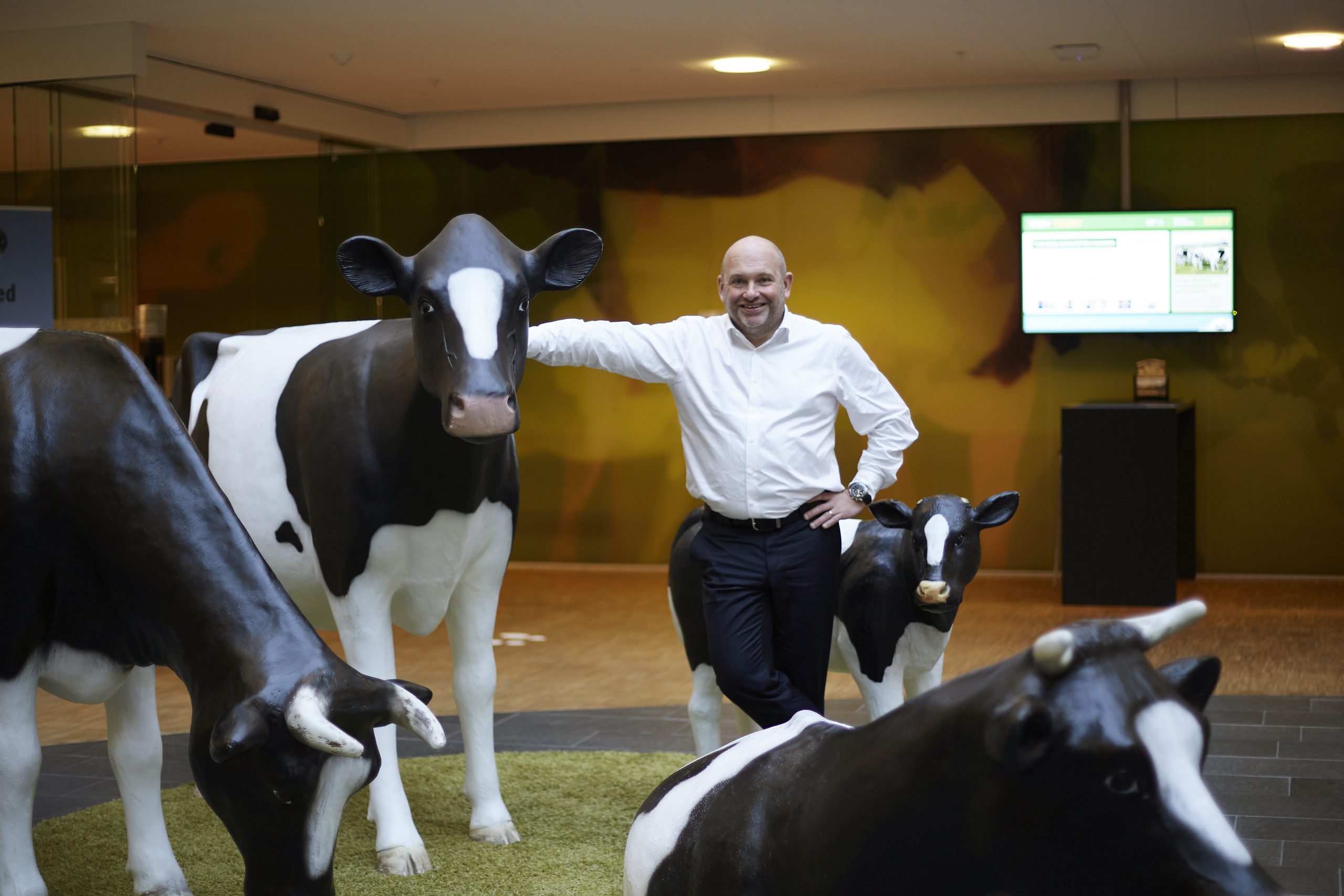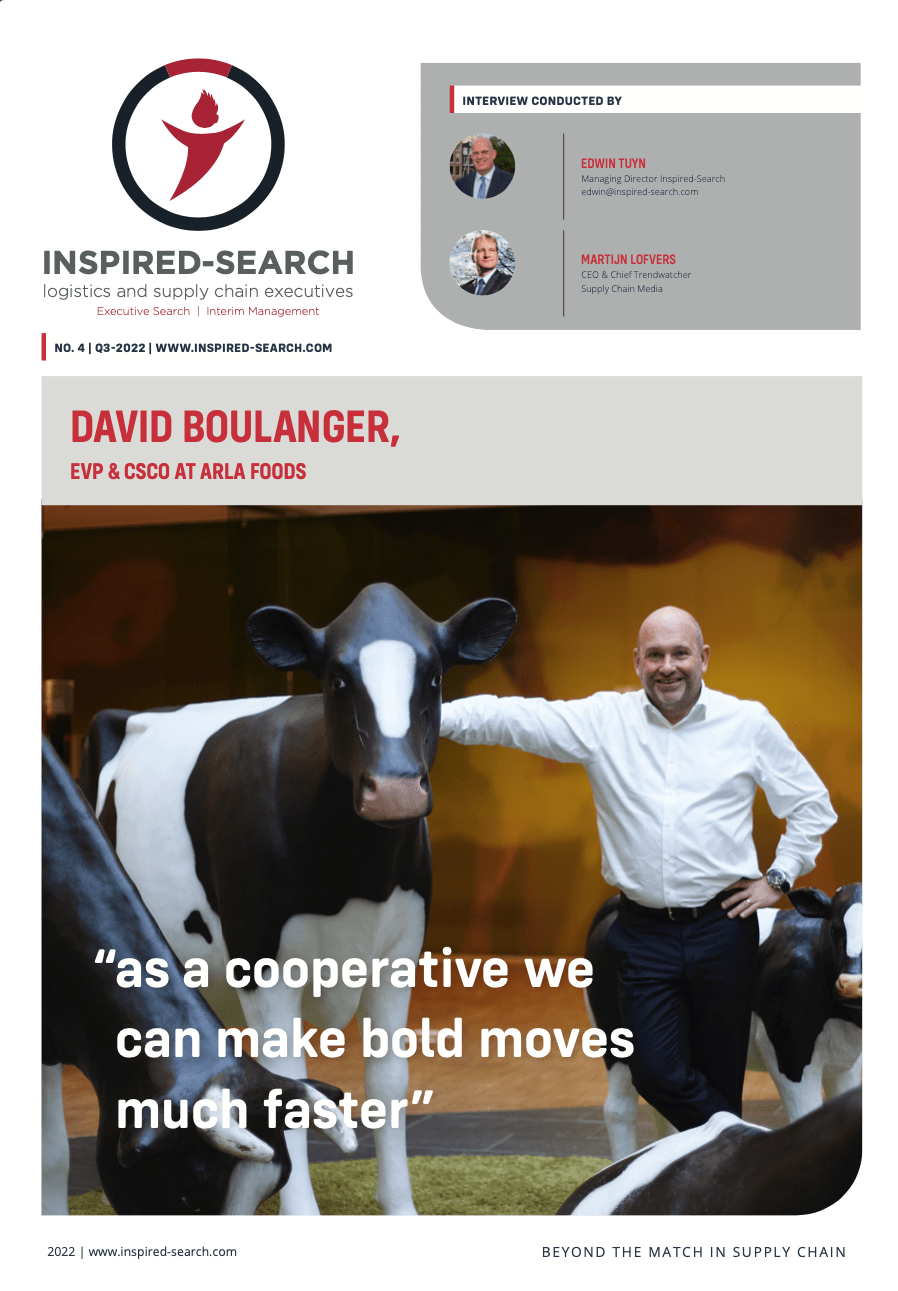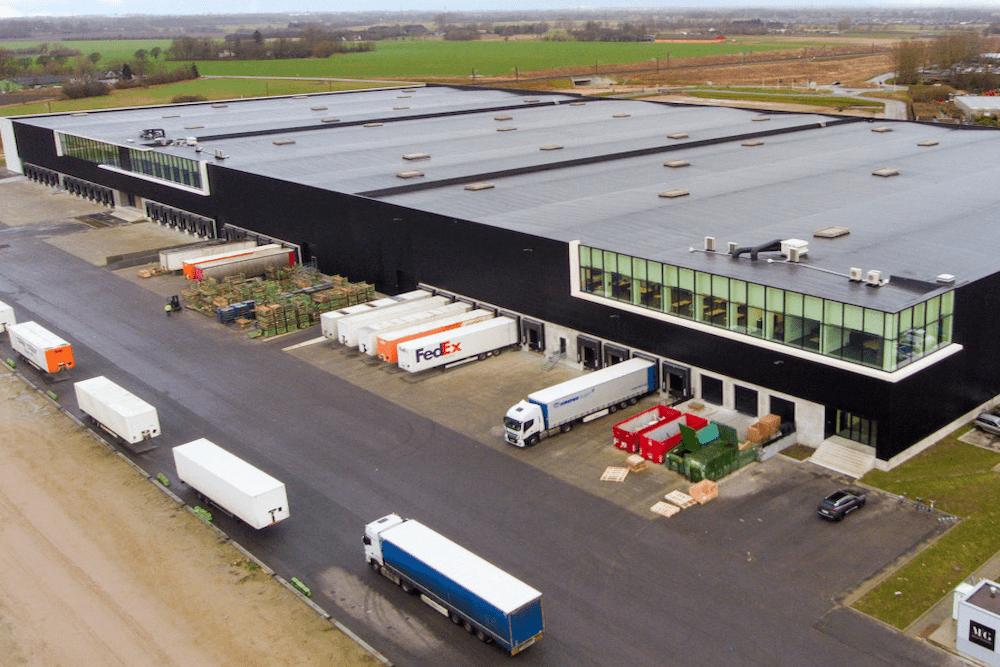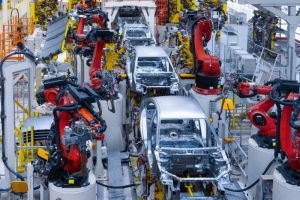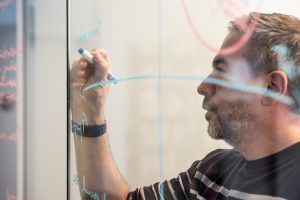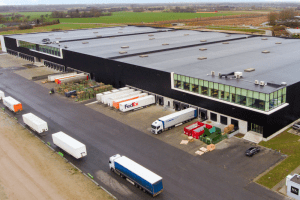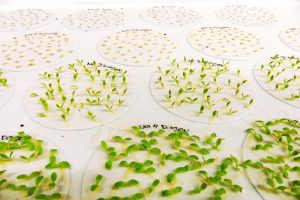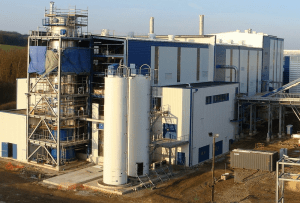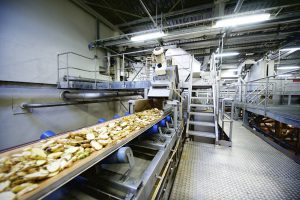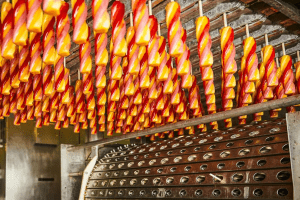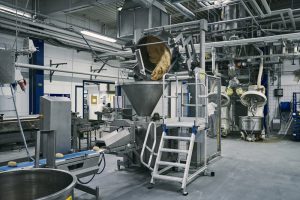Arla Foods is owned by approximately 8,900 farmers in seven European countries who supply around 14 million litres of milk per day for Arla’s well-known brands including Lurpak and Castello. Its vision is to “Create the future of dairy to bring health and inspiration to the world, naturally.” Boulanger says he was fortunate to join Arla Foods in 2020. Having successfully navigated through the peak COVID-19 period, the company was in a strong position and was on the verge of defining its new five-year business strategy: Future26. “Joining when I did provided a great opportunity to fully review the business and build a new supply chain strategy addressing Arla’s strategic agenda.” The current uncertainty and volatility in the world is not derailing Arla’s long-term supply chain transformation agenda. Over the next five years, as part of its Future26 strategy, it will increase its investments by more than 40% to 4+ billion EUR to focus on sustainability, digitalization, new production technologies and product development. “Worldwide demand for dairy is expected to grow in the years to come, providing healthy nutrition to a growing global population, but it is not without its challenges, in particular dairy production’s impact on the environment,” says Boulanger. This is an area in which Arla believes passionately it can contribute to the solution and create a sustainable future for dairy including climate net zero by 2050. “Arla’s farmer owners are already amongst the most climate-efficient in the world and we have committed significant investments to support them in their sustainability journey and to decarbonize the entire value chain.” In this increasingly volatile world, not only does the supply chain have to be highly agile and resilient, so do the people working within it. “In these times of uncertainty and anxiety, caring for my people is my number one priority,” says Boulanger. “It is absolutely essential because if they are not physically and mentally fit, they will not be able to deliver.” We talk to David Boulanger about how disruption has catalysed and accelerated the transformation of Arla’s value chains.
What attracted to you to supply chain management?
“I studied general engineering at Ecole Civil des Mines de Paris and had absolutely no plan to work in the food industry or in supply chain. However, after graduating, I completely by chance met some leaders working for Mars and was intrigued by their advanced thoughts on supply chain. They offered me three missions to complete within two years which, if successful, would lead to a managerial position. The job also paid well so I had little to lose. I’ve been in the food industry ever since. I started as a factory planner and moved around several positions and countries for Mars for 10 years. Its supply chain was very advanced and it was definitely a company where I learnt a lot. When the two Mars brother-owners retired and as the culture of the company began to significantly change, I decided to leave and joined Danone’s Biscuits division taking positions in different functions within supply chain and manufacturing. In 2007, Danone took the strategic decision to sell the activity to Kraft/Mondelez, so I joined this company but shortly afterwards, returned to Danone, this time in the Netherlands running the supply chain for its recently acquired Nutricia Medical nutrition business. I was later appointed Head of global supply chain for the total Specialised Nutrition business, my last position in Danone.
It was in the middle of the COVID-19 pandemic that Arla invited me to come and run its entire supply chain. Although it was a very hectic period to move to a new company, I decided to do it. I was attracted by Arla, its fantastic products, its people, its values and culture.
As a cooperative, you are owned by your suppliers. Does that make it easier or more difficult to create a new business strategy and achieve your sustainability goals?
Without a doubt, I see it as an opportunity. In Arla we all – farmer-owners and employees – work together to develop economically viable and sustainable consumer propositions. We all benefit. Sustainability is of course a challenge in dairy but we believe it is our biggest opportunity. The entire cooperative is committed and we believe we can make it happen faster than anyone else because we own the whole value chain and have a governance, engaging our farmer-owners in everything we do. I have worked in private-listed food companies and, in my experience, the major sustainability challenge sits in the upstream. Our set-up is very different, we are not short-term driven and can take bold moves involving our entire value chain much faster. If one dairy company can build a true carbon neutral dairy industry, I believe it is Arla.
You are responsible for the end-to-end supply chain – planning, procurement, manufacturing, logistics and quality – from the farmer to the customer. What are your main challenges in these turbulent times?
We are living in a very volatile world. As I said, COVID-19, Brexit and now Ukraine require extensive agility and that is a challenge in itself. Developing agility, having quick decision-making processes, empowering our front-line employees as much as possible is something we definitely need to nurture. However, the intensive focus on short-term business continuity should not offset our long-terms challenges and goals. Our first goal is, overarchingly, to deliver our sustainability commitments. We aspire to lead sustainability within the dairy industry. While we have already come a long way, a lot still needs to be done to reach our carbon net zero goal by 2050 and the 1.5 degree commitment by 2030. The latter requires a total reduction in carbon emissions in our supply chain by 63% by 2030 vs 2015. We are half-way in and have already delivered 25%; there is still close to 40% to go. The current Ukraine situation and fuel/gas inflation have highlighted the need to be less dependent on fossil energy so we are accelerating our energy reduction work and our transition to green energy, for example solar, wind, biomass and heat pumps. Our second goal is to further develop our supply chain set-up to deliver our growth ambition and strengthen our resilience. We have plans to invest further in capacities to match our demand plans. At the same time, we believe uncertainty and volatility will not disappear in the future. Therefore, we will review our sourcing, manufacturing and logistics networks in our different geographies. Our third goal is to drive our supply chain digital transformation which has been accelerated by COVID-19. We are convinced that digitalization is the enabler for increased flexibility and efficiency in the future. Last, but not least, we will focus on our people. Supply chain is and will always be driven by colleagues. We anticipate a scarcity of talents at all levels from frontline workers to higher manage-rial levels. As supply chain jobs become increasingly complex and technical, attracting and retaining talents, building competences and nurturing a great place to work will increasingly become a competitive advantage.
As a leader how do you create an environment that allows people to make decisions and also make mistakes?
Everyone makes mistakes. Of course, the aim as an organization is to minimize the number of failures. But failures are healthy too because they are opportunities to learn. As we go through significant volatility those days, speed of decision making is paramount when you face challenges or in order to capture any opportunities that the crisis presents. That means that as a leader, my role is to create the conditions to allow for failures but equally important, to identify failures very quickly and readjust when needed. “Fail, yes, but fail fast and learn” is my motto.
